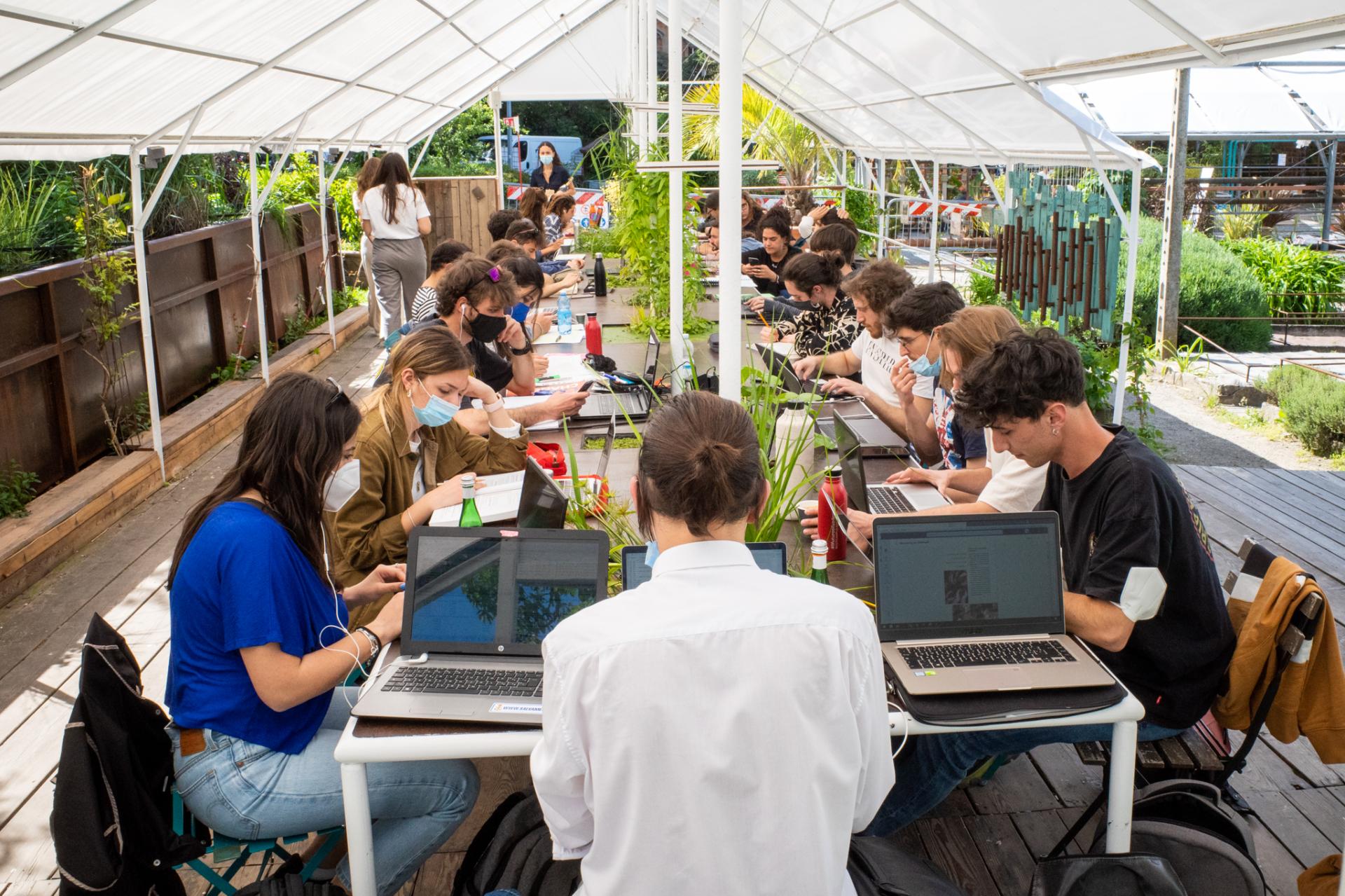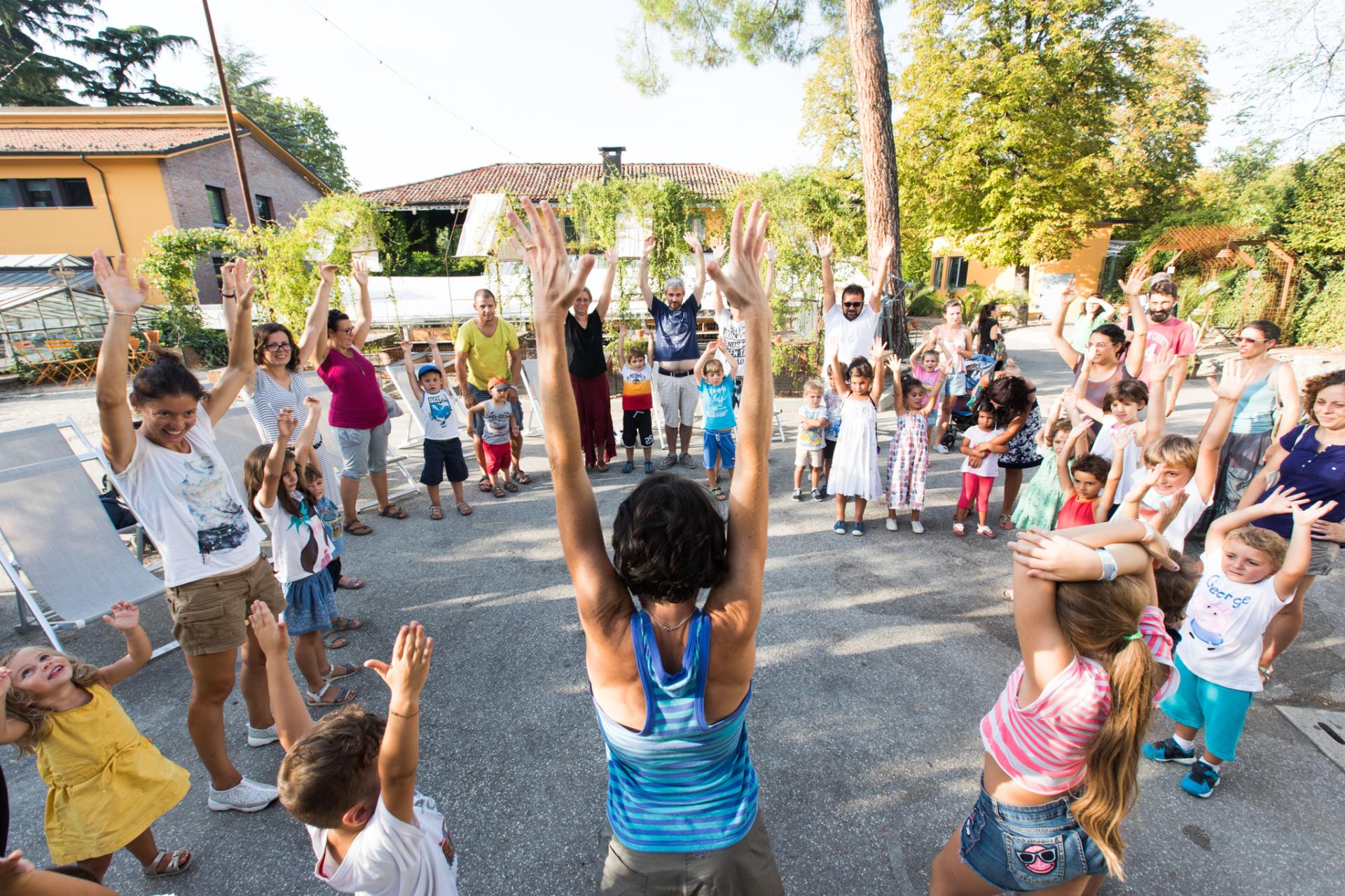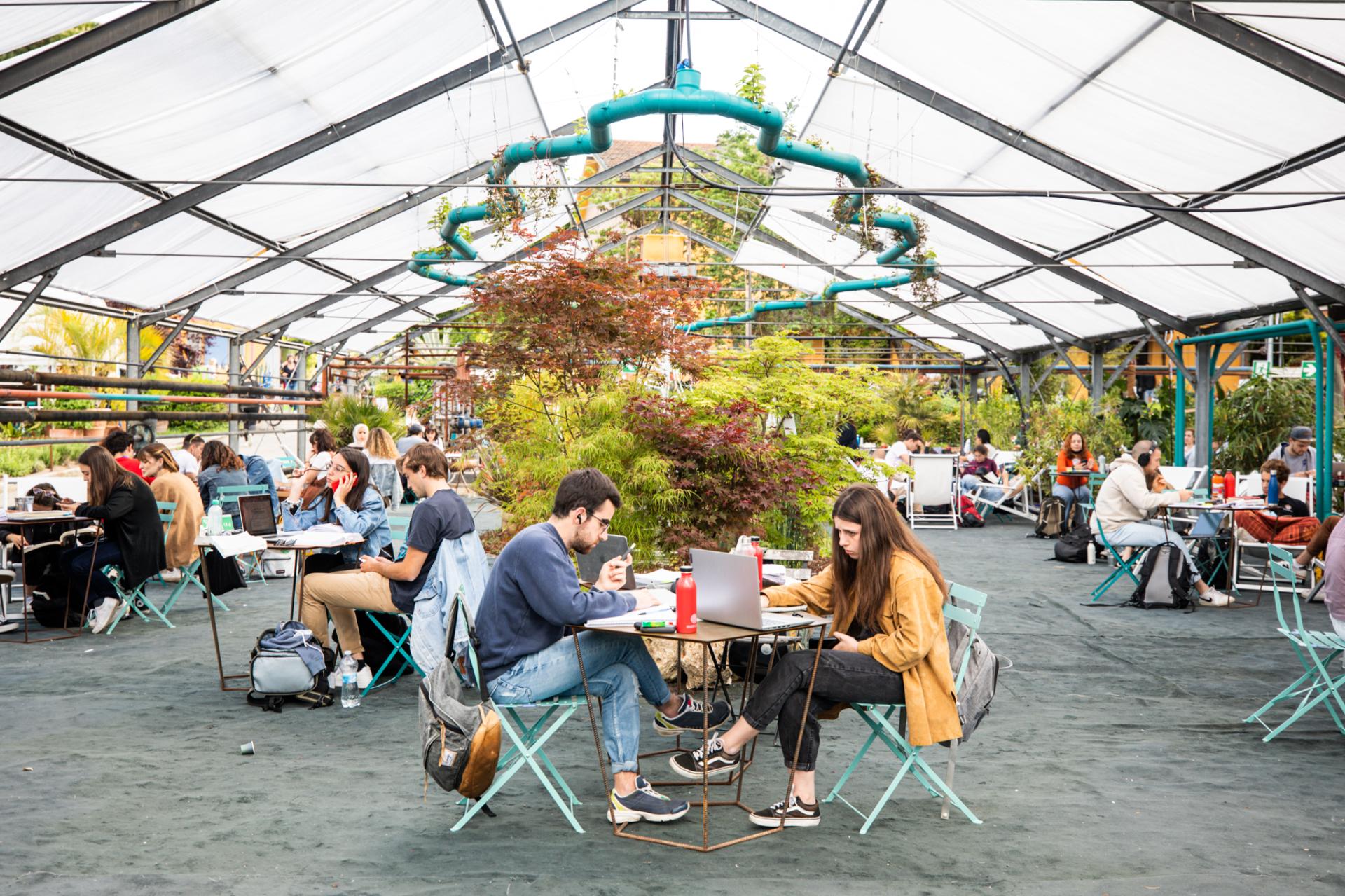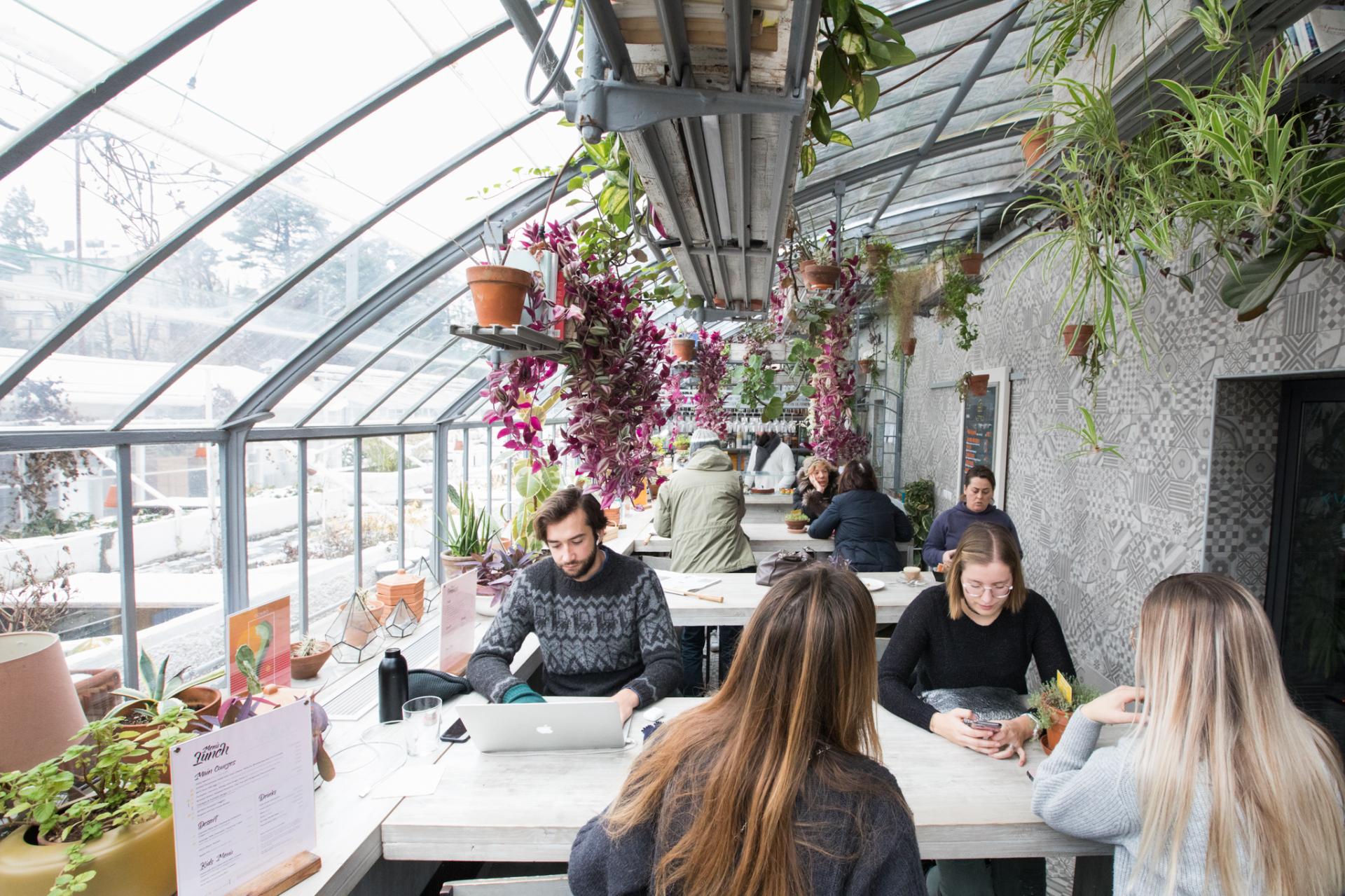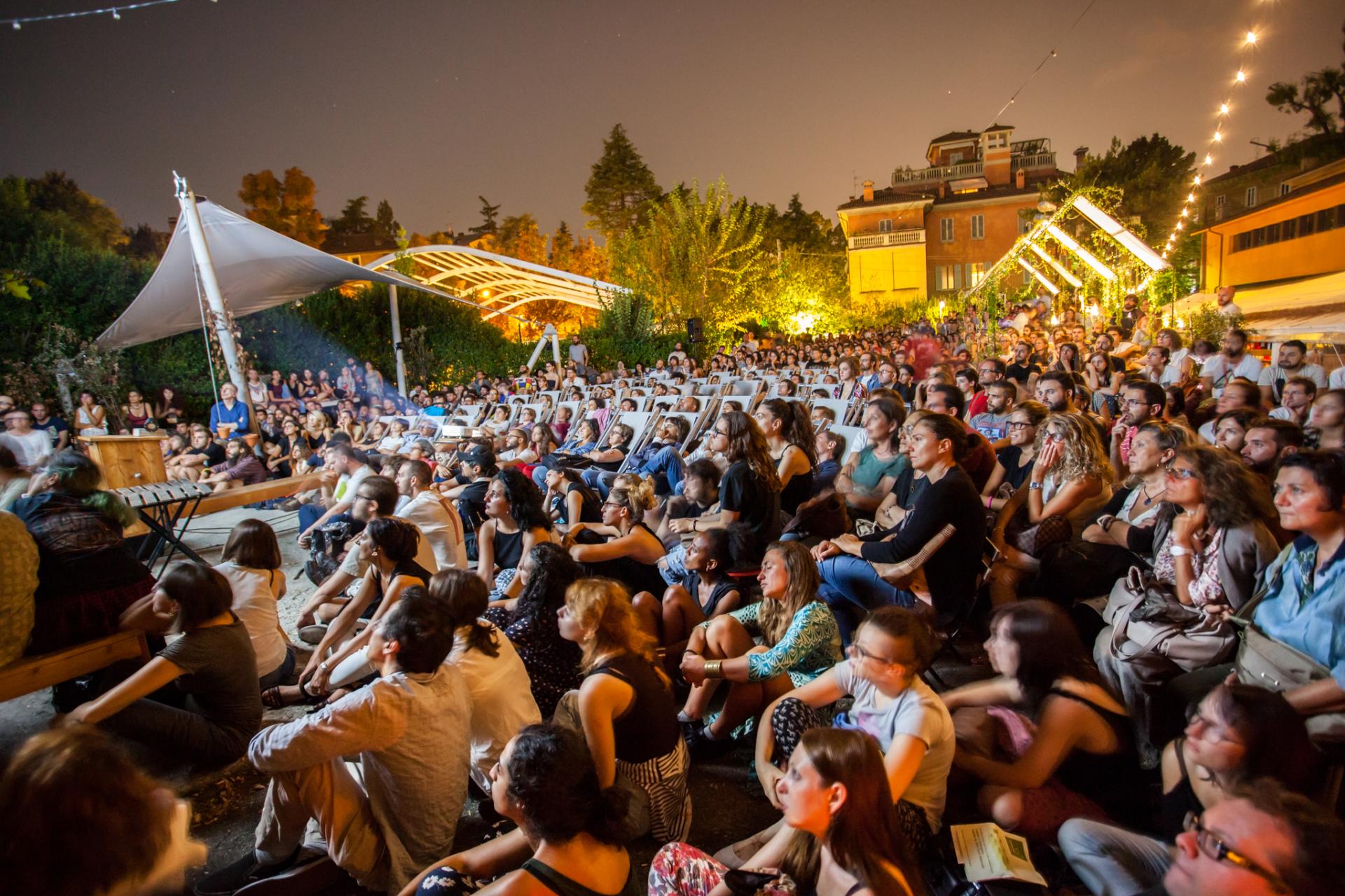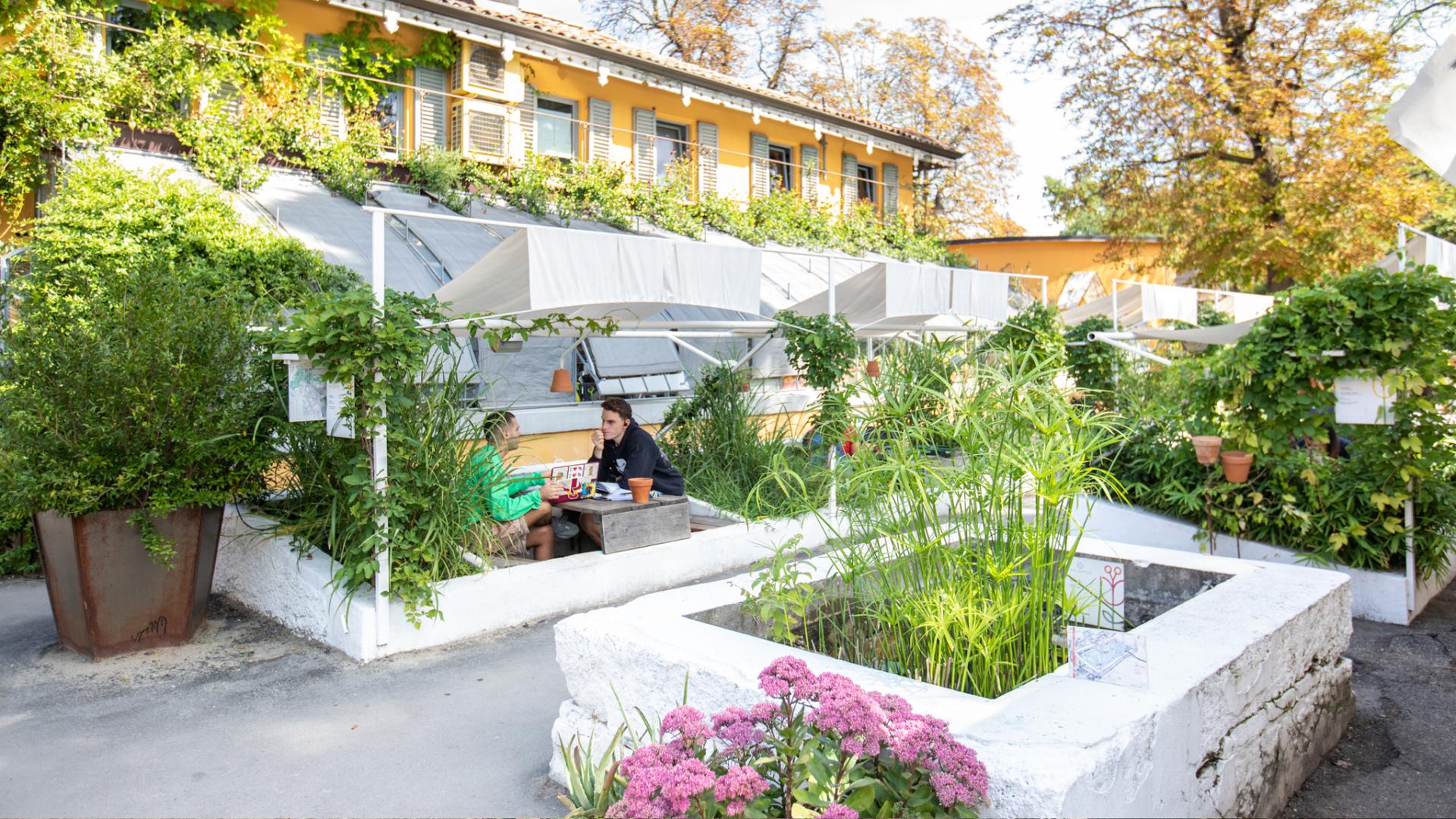Le Serre dei Giardini, Bologna
Basic information
Project Title
Full project title
Category
Project Description
Le Serre dei Giardini is the story of a social, environmental and cultural regeneration process in which a previously abandoned public space has been transformed into a place which is a “nursery” of ideas where desirable, sustainable and inclusive futures are made possible through tangible projects. 7 days a week people can immerse themselves in the contamination between art and nature, eat sustainable food, learn and grow up as part of a community reconnecting with the natural world.
Geographical Scope
Project Region
Urban or rural issues
Physical or other transformations
EU Programme or fund
Which funds
Description of the project
Summary
In the heart of Giardini Margherita park in Bologna, over the past 7 years 500 sqm of abandoned greenhouses and 3000 sqm garden have been subject to an incremental regeneration process which gave life to Le Serre proposing a rethinking of the relationship between urban human life and the natural environment. The leader of the project is Kilowatt, a workers’ cooperative who, since 2014, generates value within the local economy in the name of mutualism, reciprocity and collaboration. The local community has been continuously involved in the regeneration process through a co-design approach, which aimed at giving answers not only to social and environmental needs, but also to people’s desires. Le serre hybridize skills, functions and activities through different socio-spatial configurations. Four main pillars animate this multidisciplinary project by giving shape to Le Serre and providing highly diverse yet integrated services for social utility:
- aesthetically inspirational and nature-based public space: le Serre are open 7 days a week and allow about 120k people per year to freely work, study or just relax in a beautiful setting, being surrounded by art installations and site furniture that establish harmonious relationships with the garden
- circular food production-consumption ecosystem: since 2019, an aquaponic cultivation system has been implemented in the garden to feed an organic vegetarian bistrot which animates one of the greenhouses
- experimental artistic production tackling environmental issues: we organise cultural events bringing together art, scientific and humanities research into a multidisciplinary knowledge exchange model to address contemporary challenges linked to the multiple and interdependent crises we are facing
- Lifelong learning and outdoor education: a coworking space driven by social and environmental impact goals promotes knowledge exchange processes, while a kindergarten livens up the place through an outdoor educational model
Key objectives for sustainability
The english translation of “serra” is “nursery”, which stands for a place of growth and blossoming, concerning both human beings and plants. The space of le Serre, since the beginning of the regeneration process, absorbed this particular vocation, pursuing the emergence of alternative models of living, producing and consuming truly respectful of all forms of life inhabiting the planet. The most striking example of our attitude towards sustainability is the implementation of an aquaponic system within the garden, which guarantees a high quality and low-input local food production circuit, allowing 90% saving on water compared to traditional agriculture and avoiding soil exploitation. Following natural life cycles, this system does not require the use of fertilisers or pesticides, guaranteeing environmental sustainability and quality food. The circularity is both ways: on the one hand, the aquaponic cultivation system feeds the kitchen of le Serre bistro, on the other hand an earthworm compost transforms organic waste of the restaurant into fertiliser reused, in turn, to grow vegetables. Also, since 2018 the vegetarian bistro has entirely substituted plastic material with biodegradable and reusable packaging, and a freely accessible filtered water fountain has been installed to contrast the use of disposable bottles, nudging consumer behaviour in a positively impactful way. Sustainability is also at the core of our Resilienze Festival: every year we engage artists to prompt the understanding of the invisible bonds that interconnect humans and nature as part of a complex system, fostering proactivity towards positive change. Our kindergarten, through a Nature Pedagogy, educates the citizens of tomorrow to build healthy relationships with the environment since the first stages of growth. Finally, in the coworking space we offer incubation and acceleration programmes to everyone who aims at becoming an entrepreneur of sustainability.
Key objectives for aesthetics and quality
At Le Serre we reject dystopian and catastrophic narratives around contemporaneity and believe that attractive imaginaries are powerful tools to turn collective imagination into action in order to shape better futures. In this process, Beauty has a central role, and Le Serre are politically committed to everyone’s right to aesthetic pleasure. For this reason, the place is designed to stimulate empathy towards the natural world, to be considered not only as a precious resource to be protected, but above all as a form of life with a proper consciousness. The site furniture adapts its arrangement to the shape of nature and not the other way around: people can sit, walk and attend events becoming one with nature, having access to a multisensorial experience. Moreover, a team of garden designers, aquaculture experts and agronomists combine their skills to take care of the vegetation of the place all year round. The presence of art in the space reinforces the act of respectful contemplation towards nature: 8 art installations inhabit the garden and function as means of spatial communication to foster the perception of nature as a source of inspiration and aesthetic experience, therefore stimulating sustainable behaviours. For example, the water fountain at Le Serre is itself an artwork (named “Armilla”) by a local sculptor: the appropriate use of natural resources can be a creative practice. The curatorial choices behind le Serre artistic program aspire to make citizens of all ages passionate about the natural environment. Scientific research also testifies the existence of a positive correlation between aesthetic appreciation and learning: the children who grow at Le Serre’s kindergarten, as well as all the people spending time in the place working, studying or doing any other activity, are continuously exposed to Beauty, benefiting from this hedonic impact in terms of knowledge acquisition.
Key objectives for inclusion
All the daily practices that occur in the space of Le Serre are regulated by the idea that, to be effective, sustainability should be an inclusive process. Therefore, through all the activities, services and events we release, we strive in creating the key enabling conditions for everyone to generate impact: accessibility, capacity building and participation. Indeed, we offer more than 120 days a year of free cultural events and Le Serre are open, on average, 359 days a year, providing free wifi, open electrical outlets and tables to study, work or meet without paying any fee. This is why during the pandemic we became a reference point for the students’ community of Bologna, since access to indoor libraries has been restricted. Also, we believe that education and learning should be permanent processes for the development of individual critical thinking and the growth of active citizenship. Therefore, throughout the year citizens are involved in free raising awareness activities and events on sustainability, giving life to an inclusive learning environment, open to people from zero to 99 years old. Our kidergarten guarantees quality and inclusive education to little ones: KW Baby has been designed to reconcile the needs of families with flexible jobs with educational rights, social relations and freedom of children. The service is provided in partenership with the Municipality and it is as affordable as other public services. Even our aquaponic system has been designed not only as a sustainable solution, but also as a means of inclusion. A team of designers have been involved to create a spatial infrastructure (a long table to seat) aiming at bringing individuals closer to natural ecosystems, allowing to increase access to knowledge on soilless cultivation. Everyday people sitting at the “acquaponic table” can see first-hand a cultivation method of growing vegetables in synergy with the breeding of freshwater fish, without the use of soil.
Results in relation to category
At Le Serre we are used to run social impact evaluation of the project, in order to learn and communicate how we generate value for the local community and understand what should be improved according to our users’ feedbacks.
Following we provide a synthesis of the main results and impacts we achieved and monitored since we started the regeeration process in 2014:
- we have invested € 550,000 in the regeneration of 500 indoor sqm and 3000 outdoor sqm of public space (re-)giving birth to Le Serre;
- we have supported 12 awareness campaigns on issues related to sustainability and environmental impact;
- we have managed to eliminate 3.7 TON of plastic thanks to compostable packaging;
- we have invested € 341,000 to organise more than 1267 free cultural events;
- we have involved 194 cultural organizations and 1282 artists;
- we have hosted more than 120.000 visitors per year;
- In 2018 we won the “WELCOME. Working for refugee integration” prize, a formal recognition by the UNHCR awarded to enterprises committed to foster social inclusion and integration of refugees in their country;
- 47 children from 0 to 6 years old grew up in our outdoor education kindergarten;
- we have organized more than 184 workshops and free lectures for children;
- we have held 51 parenting co-planning and training meetings;
- Kilowatt workers’ cooperative guarantees 16 permanent contracts, of which 75% are women
- we have supported 20 urban regeneration projects in other municipalities in collaboration with PA;
- 130 individuals/organisations have attended our courses on social impact evaluation;
- 200 young people have attended our modules on impact entrepreneurship;
we have supported 87 indivudals and informal groups to create impact business models and 11 of them launched a start-up
How Citizens benefit
The right to the city - namely the right to reinvent urban space in order to answer social needs - is not a mere individual liberty: it is the common right to collectively transform society by changing current unsustainable urban development patterns. Le Serre is a platform for common reappropriation of public space in harmony with the nautral world by local communities within the city. “Community organizing” is one of the key principles of Le Serre, by which we mean that the design of a place - and therefore of the service it provides - is more effective when it is the result of a collective effort and process, involving a community that (implicitly) share a need, an interest, a desire. For example, our kindergarten Kw-Baby has been co-designed together with parents freelance parents (mainly using ou coworking space) who were looking for felxible solutions for their childcare. With the help of pedagogists, researchesr and above all users (parents), we created an experimental and innovative welfare service, promoting outdoor education, that was not existing in Emilia-Romagna Region before then. In the same way, the aquaponic system is the evolution of a previous community garden experience at Le Serre, in which citizens had been engaged and trained to run the participatory management and maintenance of the vegetable garden, sharing the crops. Also, every years young citizens are involved as voluteers to help out with the organisation of Resilienze Festival, becoming part of the process and having the opportunity to learn how to plan grassroots events. Finally, every year we give a sample questionnaire to collect feedbacks from Le Serre’s users to get insights on how to improve our services and to write collectively the story of the place.
Physical or other transformations
Innovative character
Le Serre has been, in the Emilia Romagna region, the first urban regeneration project based on a private-public partnership of such a scale and success and became a best practice, nationally and internationally. What is the most innovative aspect of the project is the demostrated capability to preserve the intrinsic public value of the space in terms of accessibility, while guaranteeing solid entrepreneurship, high quality services and public participation. All the project is ruled by a cooperative model of resources management: Kilowatt revenues are entirely reinvested in the management of the space, cultural activites and services of social utility. Our aquaponic cultivation system differentiates itself from any other aquaculture practice, because it is not only used as a cultivation means, but above all as an aesthetic and engaging practice, beautifying a place and bringing people closer to nature. This innovative model constitutes, in the case of Le Serre, a transformative tool for urban regeneration based on green & blue infrastructure, key principles also promoted by the European Commission to enable sustainable cities.
Learning transferred to other parties
Every year we hold about 120 guided visits of Le Serre, through which we show and explain our model to other private organisations, public administrations, schools and university class willing to replicate our innovative urban regeneration approach elsewhere.
In 2016 we wrote our first position paper opening a national debate, to the extent that our learnings were also used by the Emilia Romagna Region to write the call for tenders for the Laboratori Aperti 2019.
Since 2014 we have consulted and supported 20 national public administrations to activate similar urban regeneration projects in other municipalities and we trained 87 individuals and informal groups to create impact business models, where 11 of them launched a start-up. We are also teaching our model and our approach in the Urban regeneration and Social innovation Master of IUAV University of Venice. IUAV University asked us to share with students and future urban regenerators our learning, tools and theories, as audience development and community organizing.
We also bring our approach in other Master Degrees such as Relational Design (IdLab - Abadir), an itinerant teaching program to discover new approaches to design, IAAD institute of applied art and design and Madim, a master degree in management and digital transformation.
Since 2020 le Serre are part of Lo Stato dei Luoghi, a national network of culture-based regeneration projects, whose main aim is to share knowledge in order to advance public debate around bottom up urban regeneration as a means to tackle contemporary social and environmental crises.
Our Kindergarten KW Baby has been recognised as innovative and experimental welfare project by Emilia-Romagna Region and is considered a virtuous replicable model of outdoor education.

